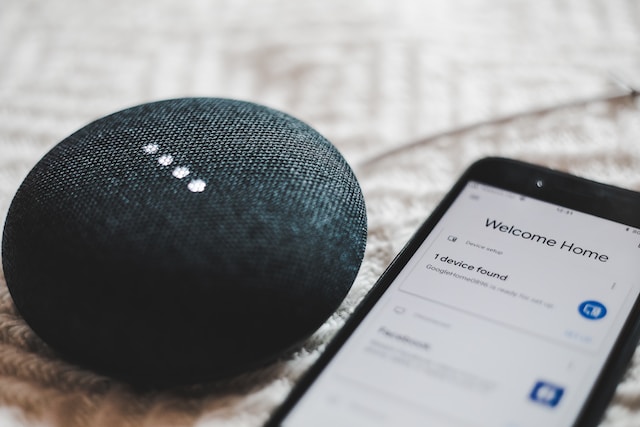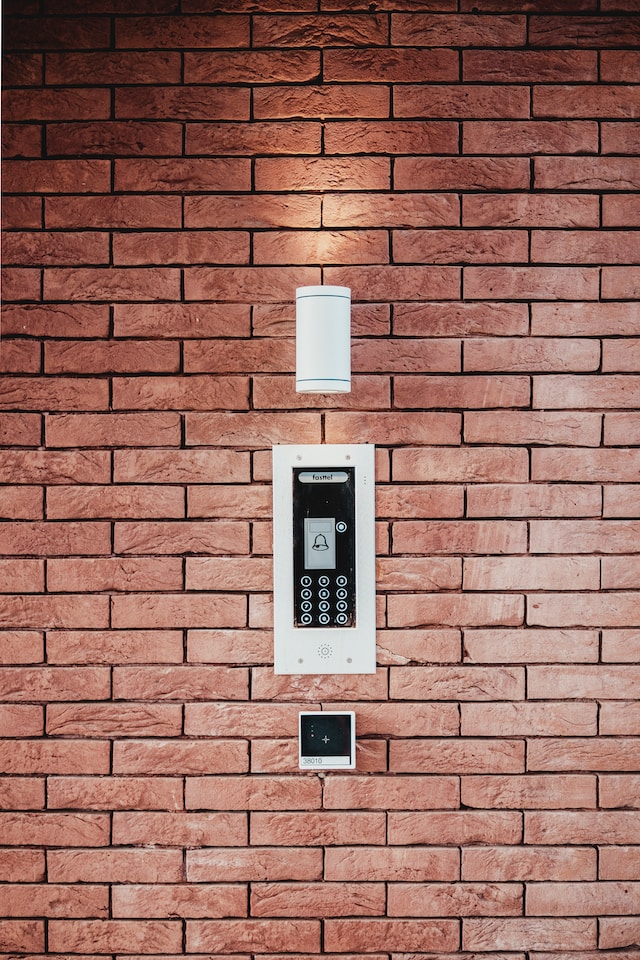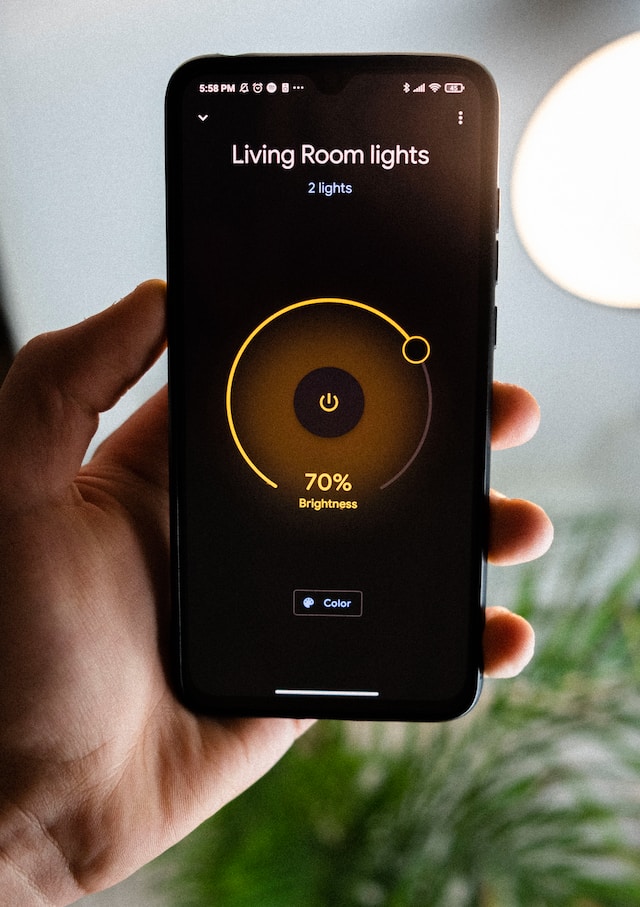
In the midst of a swiftly evolving world, where technological advancements continue to shape our lives, the idea of a sustainable future has become paramount. From renewable energy sources to eco-friendly transportation, the concept of sustainability has seeped into every aspect of our lives, including our homes. As we strive to minimize our carbon footprint and adopt a more responsible way of living, the role of home automation systems in enhancing sustainability has emerged as a significant avenue to explore. By seamlessly integrating innovative technologies into our homes, we not only promote energy efficiency but also take a remarkable step towards building an energy-smart future.
Home Automation Systems: A Foundation for Energy-Smart Homes
In the quest for minimalist, clutter-free, and energy-smart homes, home automation systems have emerged as the crucial foundation. These intelligent systems serve as the backbone of energy efficiency, seamlessly integrating various technologies to optimize energy usage and enhance sustainability.
- Centralized Control and Connectivity
Home automation provide homeowners with centralized control over various devices and appliances in their homes. Through a single interface, residents can effortlessly manage and monitor energy consumption, enabling them to make informed decisions about optimizing energy usage. Furthermore, these systems foster connectivity among different devices, allowing them to work together harmoniously in achieving greater energy efficiency.
- Scheduling and Automation
With the power of automation, home automation systems enable homeowners to schedule the operation of devices and appliances based on their specific needs and preferences. Through intuitive programming, residents can set timers, create routines, and automate energy-intensive tasks, ensuring that energy is only consumed when required. This level of control and automation minimizes unnecessary usage and reduces energy wastage.
- Integrating Renewable Energy Sources
Energy-smart homes prioritize the utilization of renewable energy sources, such as solar power. Home automation systems play a pivotal role in seamlessly integrating these renewable sources into the energy ecosystem of the home. By efficiently managing solar panels, wind turbines, or other renewable systems, these automation systems ensure that the energy harnessed is used optimally and stored effectively for future use.
- Responsive Energy Management
Home automation systems feature responsive energy management capabilities, allowing them to adapt to changing circumstances and dynamically adjust energy consumption. Through sensors and real-time data analysis, these systems can optimize energy usage based on occupancy, external weather conditions, and energy demand. This responsiveness ensures that energy is utilized efficiently, avoiding unnecessary consumption and reducing overall energy costs.
- Enhanced Security and Safety
Beyond energy efficiency, home automation systems enhance the security and safety of energy-smart homes. With integrated smart security systems, residents can remotely monitor their homes, detecting unauthorized access and potential threats. Moreover, these systems utilize sensors and detectors to detect leaks, fire hazards, or other dangerous situations, providing early warnings and taking appropriate actions to ensure the safety of occupants and prevent energy wastage.

Benefits of Home Automation Systems
Home automation systems offer a myriad of benefits that go beyond convenience and comfort. These intelligent systems play a crucial role in enhancing energy efficiency, promoting sustainability, and improving the overall quality of life for homeowners. Let us explore the remarkable benefits that home automation systems bring to energy-smart homes:
Energy Savings and Cost Efficiency:
By seamlessly integrating various technologies and offering precise control over energy consumption, home automation systems enable homeowners to save significant amounts of energy and reduce their electricity bills. Through features like smart lighting solutions, intelligent HVAC systems, and energy monitoring and management, these systems optimize energy usage, minimize waste, and maximize cost efficiency.
Enhanced Comfort and Convenience
Home automation systems create a more comfortable and convenient living environment for homeowners. With centralized control and automation, residents can effortlessly manage various aspects of their homes, from adjusting lighting and temperature to scheduling the operation of appliances. These features not only enhance comfort but also simplify daily routines, allowing for a more enjoyable and stress-free lifestyle.
Improved Security and Safety
Beyond energy efficiency, home automation systems contribute to the security and safety of energy-smart homes. Through integrated smart security systems, residents can remotely monitor their homes and receive instant notifications in the event of unauthorized access or potential threats. Moreover, these systems utilize sensors and detectors to detect leaks, fire hazards, or other dangerous situations, providing early warnings and taking appropriate actions to ensure the safety of occupants and prevent energy wastage.
Environmental Sustainability
Home automation systems play a crucial role in promoting environmental sustainability. By optimizing energy usage, minimizing waste, and integrating renewable energy sources, these systems help reduce carbon emissions and reliance on non-renewable energy. Through their energy-smart capabilities, homeowners can actively contribute to building a more sustainable future, preserving the environment for generations to come.
Customizability and Personalization
Home automation systems offer a high level of customizability and personalization, allowing homeowners to tailor their homes to their specific needs and preferences. With intuitive interfaces and programmable features, residents can create schedules, routines, and settings that align with their lifestyle, optimizing energy usage according to their unique requirements. This level of customization empowers homeowners to actively participate in energy conservation and create a living space that reflects their individuality.
Tips for Transitioning to Energy-Smart Homes

Transitioning to an energy-smart home is an exciting journey toward sustainability and efficiency. With the help of home automation systems, homeowners can take significant strides toward reducing energy waste, saving costs, and promoting a greener lifestyle. Here are some tips to empower homeowners in making the transition to an energy-smart home seamlessly.
- Assess Your Energy Usage
Before embarking on the journey of transforming your home into an energy-smart oasis, it’s essential to assess your current energy usage. Begin by conducting an energy audit to identify areas of high energy consumption and areas where you can make improvements. This analysis will serve as a foundation for developing an effective energy management plan as you transition to an energy-smart home.
- Set Energy Efficiency Goals
Defining your energy efficiency goals is crucial for a successful transition. Consider what areas of your home you wish to optimize and how much energy you aim to save. Whether it’s reducing electricity usage by a certain percentage or integrating renewable energy sources, establishing clear objectives will provide you with a sense of direction and motivation throughout the process.
- Research and Select the Right Home Automation System
Investing in a reliable and comprehensive home automation system is essential for creating an energy-smart home. Research different options available in the market, considering factors such as compatibility with your existing devices, scalability, and user-friendly interfaces. Choose a system that aligns with your specific needs and preferences, ensuring that it offers the necessary features to monitor, control, and automate various aspects of your home.
- Start with Basics: Lighting and Temperature Control
Begin your transition by focusing on two fundamental aspects: lighting and temperature control. Install smart lighting solutions, such as LED bulbs and automated lighting controls, to optimize energy usage through motion sensors and scheduled automation. Similarly, invest in smart thermostats that allow you to regulate temperature settings and create energy-saving schedules. These simple adjustments will lay the groundwork for greater energy efficiency in your home.
- Expand to Appliance Control
Once you have established a solid foundation with lighting and temperature control, gradually expand your energy-smart capabilities to include appliance control. Look for smart plugs or outlets that can be integrated into your home automation system, enabling you to remotely monitor and manage the energy consumption of individual devices. With the ability to turn off appliances when not in use or schedule their operation during off-peak hours, you’ll maximize energy efficiency and reduce unnecessary waste.
- Explore Renewable Energy Sources
To further enhance sustainability, consider integrating renewable energy sources into your energy-smart home. Research and evaluate the feasibility of installing solar panels, wind turbines, or other renewable energy systems. These installations can work in tandem with your home automation system to harness and optimize the energy generated from these sources, reducing your reliance on non-renewable energy and supporting environmental conservation.

- Educate Yourself and Engage with Energy Providers
Stay informed about the latest trends and innovations in the field of energy-smart homes. Attend workshops, webinars, and conferences that focus on sustainable living and energy efficiency. Engage with energy providers to understand the incentives and programs available in your area to support your transition. By continuing to educate yourself and collaborate with industry professionals, you can stay ahead of the curve and maximize the potential of your energy-smart home.
Transitioning to an energy-smart home requires careful planning, research, and a willingness to embrace innovative technologies. By assessing your energy usage, setting clear goals, investing in the right home automation system, and gradually expanding your energy-smart capabilities, you can empower yourself as a homeowner in creating a sustainable and efficient living space. Take the first step today and embark on a remarkable journey toward a greener future.
